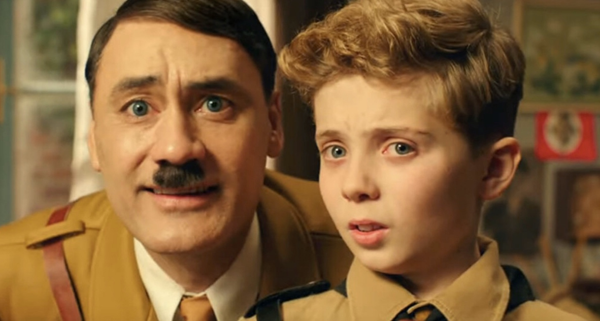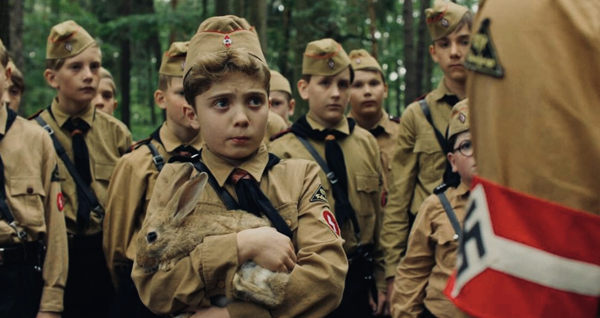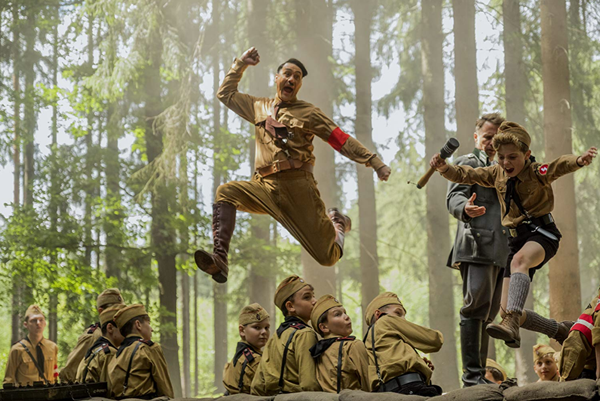
The main thing people know about Taika Waititi’s new film Jojo Rabbit is that it’s about a young boy whose imaginary friend is Adolf Hitler. That’s a tough sell, even for me, and I love Taika Waititi. His best known work is also arguably the best Marvel movie, Thor: Ragnarok, but the New Zealand-born writer/director has also had critical hits with his coming-of-age comedies Boy and Hunt for the Wilderpeople, as well as his breakout vampire mockumentary What We Do in the Shadows (on which he also writes, directs, and produces the excellent television adaptation). Oh, he also directed the season finale of a little show called The Mandalorian.
So yeah, his bona fides are not in question. But when a 10-year-old boy named Jojo, dressed in full Hitler-youth regalia, is receiving a pep talk in his bedroom from Adolf Hitler (Waititi himself, as only he could pull it off), it’s a bit jarring. However, Waititi has proven himself a master of tone and balance, whether between the ridiculousness of a rock monster gladiator and his unassuming New Zealand accent, or between gothic, Anne Rice-inspired vampires and a reality show film crew; the seeming incongruity in Jojo Rabbit’s central conceit (the film is co-written, and based on the novel by Christine Leunens) is the perfect stone for this master sculptor.

When Jojo goes to Hitler youth camp, the jokes come fast and hit hard, set against bright camp colors and beautifully symmetrical shots that bring to mind an unholy mashup I can only describe as Moonreich Kingdom (the German renditions of timeless ’60s and ’70s rock tunes enhance the comparison). Waititi instinctively knows that for this to work, the Nazis must always be the butt of the jokes. Their antics make them look like buffoons, but Waititi never undercuts the danger inherent in their beliefs.
The casting of actors who can seamlessly walk the line between silly and serious is a large reason this succeeds. Sam Rockwell is the perpetually drunk and demoted SS officer who is responsible for a severe accident involving Jojo and a hand grenade. (You know, a father figure.) Rebel Wilson also shines as the camp’s fervent Frauline Rahm. And the lanky and lovable Stephen Merchant instills fear as the against-type gestapo officer.

Of course, the film would fall apart if the title character wasn’t perfectly portrayed by Roman Griffin Davis. Waititi has a knack for getting scene-stealing, naturalistic performances from young actors (seriously, go watch his other films), and first-time actor Davis delivers just that. Likewise, Scarlett Johansson, as Rosie, Jojo’s single mother with a secret, gives one of her very best performances and has never been as whimsical or life-affirming.
Without giving too much away, it’s no surprise that, given the setting of end-of-WWII era Germany, there is plenty of tension and drama and tragedy to be mined. What is a surprise is that there is also plenty of silliness and hilarity and beauty, often oscillating in quick succession between the two extremes, evoking a whirlwind of human emotions that would cause whiplash in less capable hands. Taika Waititi has made a fantastical, farcical satire that is also the sincerest movie of the year. It’s up for Best Picture for a reason, and it has my vote.













